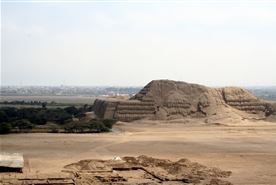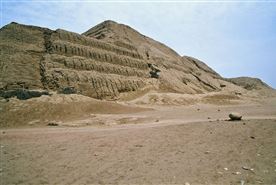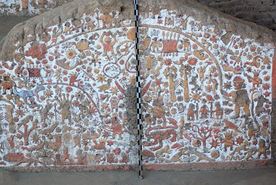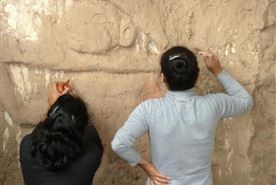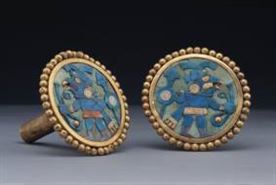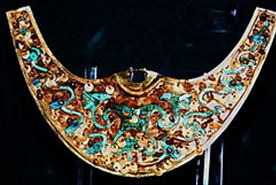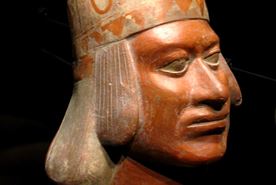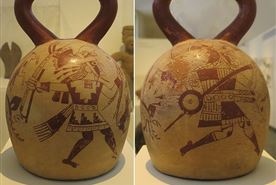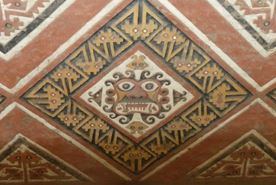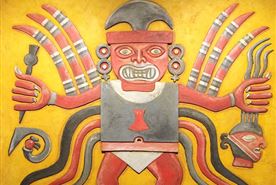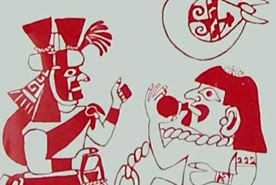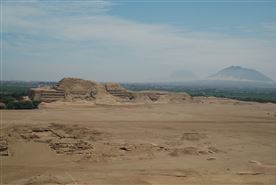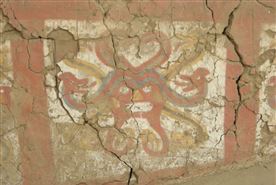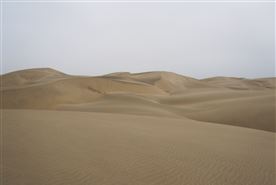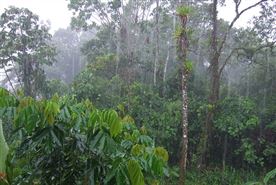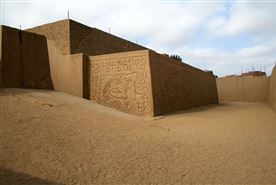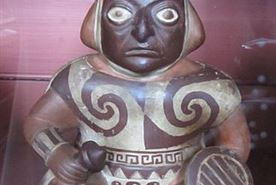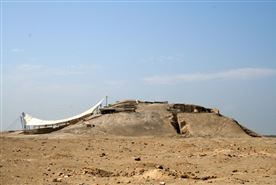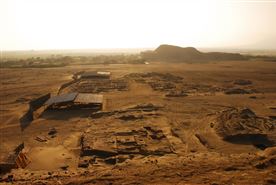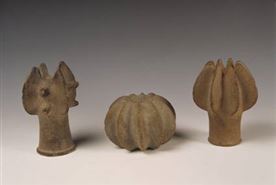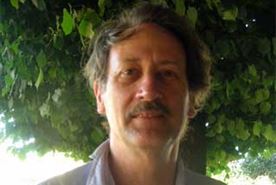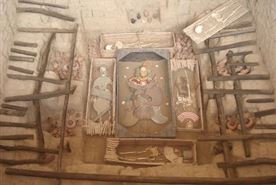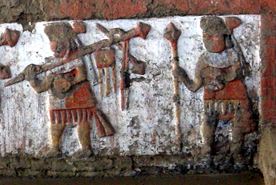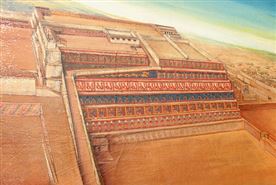YOLA 08: The Lost Civilization of Peru
Noun
a structure, like a bride, pipe, or channel, that is used to carry water through a valley
aqueduct
Out in the desert, archaeologists have also found the 2,000-year-old remains of an extensive system of mud brick aqueduct which enabled the Moche to tame their desert environment. Many are still in use today.
Out in the desert, archaeologists have also found the 2,000-year-old remains of an extensive system of mud brick aqueduct which enabled the Moche to tame their desert environment. Many are still in use today.
Noun
a simple object such as a tool, weapon, or jewelry made by people of the past
artifacts
These artifacts included ear studs and necklaces, nose rings and helmets, many heavily inlaid with gold and precious stones. But it was the pottery that gave the archaeologists their first real insight into Moche life.
These artifacts included ear studs and necklaces, nose rings and helmets, many heavily inlaid with gold and precious stones. But it was the pottery that gave the archaeologists their first real insight into Moche life.
Verb
to defeat (someone) completely in a war, battle, etc.
vanquished
All the Moche soldiers were dressed alike, the same images were repeated time and again. When the battle was won, the vanquished were ritually sacrificed.
All the Moche soldiers were dressed alike, the same images were repeated time and again. When the battle was won, the vanquished were ritually sacrificed.
Adjective
done as part of a formal ceremony, in a particular situation and in the same way each time
ritual
Their throats cut, the blood of the vanquished drained into a cup and the cup was then drunk by a God-like deity. It was, the archaeologists slowly realized, a story not of war but ritual combat followed by human sacrifice.
Their throats cut, the blood of the vanquished drained into a cup and the cup was then drunk by a God-like deity. It was, the archaeologists slowly realized, a story not of war but ritual combat followed by human sacrifice.
Noun
an important discovery that happens after trying for a long time to understand something
breakthrough
But what did it mean? The first breakthrough came when archaeologist Dr. Steve Bourget discovered a collection of bones at one of the most important Moche huacas.
But what did it mean? The first breakthrough came when archaeologist Dr. Steve Bourget discovered a collection of bones at one of the most important Moche huacas.
Adjective
done or said in a way that is planned or intended
deliberate
Bourget realized there had to be a deliberate connection between the rain and the sacrifices. It led him to a new insight into the Moche world. The Moche had practiced a form of ritual designed to celebrate or encourage rain.
Bourget realized there had to be a deliberate connection between the rain and the sacrifices. It led him to a new insight into the Moche world. The Moche had practiced a form of ritual designed to celebrate or encourage rain.
Adjective
coming in a large, fast stream
torrential
Archaeologists found evidence of enormous rain damage at a Moche site. New building work had been interrupted and torn apart by torrential rain, and artifacts found in the damaged area dated to almost exactly that period.
Archaeologists found evidence of enormous rain damage at a Moche site. New building work had been interrupted and torn apart by torrential rain, and artifacts found in the damaged area dated to almost exactly that period.
Phrase
to kill or destroy someone or something completely
wiped them out
The evidence suggested the Moche had been hit by a double whammy: a huge climate disaster had wiped them out. For years this became the accepted version of events. The riddle of the Moche had been solved.
The evidence suggested the Moche had been hit by a double whammy: a huge climate disaster had wiped them out. For years this became the accepted version of events. The riddle of the Moche had been solved.
Noun
an organized community of a particular country, area, time, etc.
society
The Moche's story is an epic account of a society that thought it could control the world and what happened to it when it found it couldn't. It's a story of human achievement and natural disaster, human sacrifice and war.
The Moche's story is an epic account of a society that thought it could control the world and what happened to it when it found it couldn't. It's a story of human achievement and natural disaster, human sacrifice and war.
